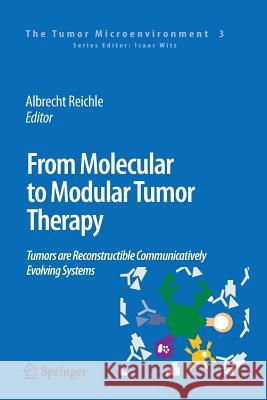From Molecular to Modular Tumor Therapy:: Tumors Are Reconstructible Communicatively Evolving Systems » książka
From Molecular to Modular Tumor Therapy:: Tumors Are Reconstructible Communicatively Evolving Systems
ISBN-13: 9789400733237 / Angielski / Miękka / 2012 / 568 str.
Chronic inflammation is one of the major pathological bases manifesting the development of gastric cancers, hepatitis and hepatocellular carcinoma, cervical cancer, ulcerative colitis and colorectal cancer 1]. Microbial infections, viral infections and autoimmune responses can lead to chronic inflammation-associated cancer formation. Human herpesviruses, such as human cytomegalovirus (HCMV) and Kaposi sarcoma herpesvirus (KSHV) are known to be associated with tumorigenesis and tumor progression. HCMV infection potentiates malignancies of colon cancer and malignant glioma 2,3]. KSHV was initially discovered from Kaposi's sarcoma lesion of an AIDS patient 4]. It was subsequently discovered that KSHV contributed to the pathogenesis of KS, primary effusion lymphoma 5] and lymphoproliferative disorder multicentric Castleman's disease. Emerging evidence shows that herpesvirus infection interferes or inhibits host cell immune defense and maintains a tumor-promoting microenvironment by expressing virulent homologues of host cell proteins that disturb normal cell cycle progression and leads to apoptosis of the host cells. For example, cellular growth and transformation are induced by viral-encoded homologues of cytokines, chemokines or chemokine receptors 6]. The constitutive expression of viral chemokine GPCRs triggers prolonged activation of G protein signaling and eventually becomes the major inputs for chronic leukocyte infiltration and cancer development. GPCRs can serve as proto-oncogenes since overexpression of various wild type GPCRs can transform cells in the presence of their specific ligands. Mutations on GPCRs may result in constitutive signaling and oncogenesis 7]. Naturally occurring mutations in GPCRs have been identified in human tumors 8,9].











